第92章
In temper, manners, and good sense, in every quality a man can or should desire in a wife, I never saw her equal.Yet, there is an obstacle, an invincible obstacle, the nature of which I cannot explain to you, that forbids me to think of her as a wife.She lives with my father and mother: they are returning to Ireland, I wished, earnestly wished, on many accounts, to have accompanied them, chiefly on my mother's; but it cannot be.The first thing a man must do is to act honourably; and, that he may do so, he must keep out of the way of a temptation which he believes to be above his strength.I will never see Miss Nugent again till she is married; I must either stay in England, or go abroad.I have a mind to serve a campaign or two, if I could get a commission in a regiment going to Spain; but I understand so many are eager to go at this moment, that it is very difficult to get a commission in such a regiment.'
'It is difficult,' said the count.'But,' added he, after thinking for a moment, 'I have it! I can get the thing done for you, and directly.Major Benson, in consequence of that affair, you know, about his mistress, is forced to quit the regiment.
When the lieutenant-colonel came to quarters, and the rest of the officers heard the fact, they would not keep company with Benson, and would not mess with him.I know he wants to sell out; and that regiment is to be ordered immediately to Spain.I will have the thing done for you, if you request it.'
'First, give me your advice, Count O'Halloran; you are well acquainted with the military profession, with military life.
Would you advise me--I won't speak of myself, because we judge better by general views than by particular cases--would you advise a young man at present to go into the army?'
The count was silent for a few minutes, and then replied: 'Since you seriously ask my opinion, my lord, I must lay aside my own prepossessions, and endeavour to speak with impartiality.To go into the army in these days, my lord, is, in my sober opinion, the most absurd and base, or the wisest and noblest thing a young man can do.To enter into the army, with the hope of escaping from the application necessary to acquire knowledge, letters, and science--I run no risk, my lord, in saying this to you--to go into the army, with the hope of escaping from knowledge, letters, science, and morality; to wear a, red coat and an epaulette; to be called captain; to figure at a ball; to lounge away time in country sports, at country quarters, was never, even in times of peace, creditable; but it is now absurd and base.Submitting to a certain portion of ennui and contempt, this mode of life for an officer was formerly practicable--but now cannot be submitted to without utter, irremediable disgrace.Officers are now, in general, men of education and information; want of knowledge, sense, manners, must consequently be immediately detected, ridiculed, and despised in a military man.Of this we have not long since seen lamentable examples in the raw officers who have lately disgraced themselves in my neighbourhood in Ireland--that Major Benson and Captain Williamson.But I will not advert to such insignificant individuals, such are rare exceptions--I leave them out of the question--I reason on general principles.The life of an officer is not now a life of parade, of coxcombical, or of profligate idleness--but of active service, of continual hardship and danger.All the descriptions which we see in ancient history of a soldier's life--descriptions which, in times of peace, appeared like romance--are now realised; military exploits fill every day's newspapers, every day's conversation.
A martial spirit is now essential to the liberty and the existence of our own country.In the present state of things, the military must be the most honourable profession, because the most useful.Every movement of an army is followed, wherever it goes, by the public hopes and fears.Every officer must now feel, besides this sense of collective importance, a belief that his only dependence must be on his own merit and thus his ambition, his enthusiasm, are raised; and when once this noble ardour is kindled in the breast, it excites to exertion, and supports under endurance.But I forget myself,' said the count, checking his enthusiasm; 'I promised to speak soberly.If I have said too much, your own good sense, my lord, will correct me, and your good-nature will forgive the prolixity of an old man, touched upon his favourite subject--the passion of his youth.'
Lord Colambre, of course, assured the count that he was not tired.Indeed, the enthusiasm with which this old officer spoke of his profession, and the high point of view in which he placed it, increased our hero's desire to serve a campaign abroad.Good sense, politeness, and experience of the world preserved Count O'Halloran from that foible with which old officers are commonly reproached, of talking continually of their own military exploits.Though retired from the world, he had contrived, by reading the best books, and corresponding with persons of good information, to keep up with the current of modern affairs; and he seldom spoke of those in which he had been formerly engaged.
He rather too studiously avoided speaking of himself; and this fear of egotism diminished the peculiar interest he might have inspired: it disappointed curiosity, and deprived those with whom he conversed of many entertaining and instructive anecdotes.
However, he sometimes made exceptions to his general rule in favour of persons who peculiarly pleased him, and Lord Colambre was of this number.